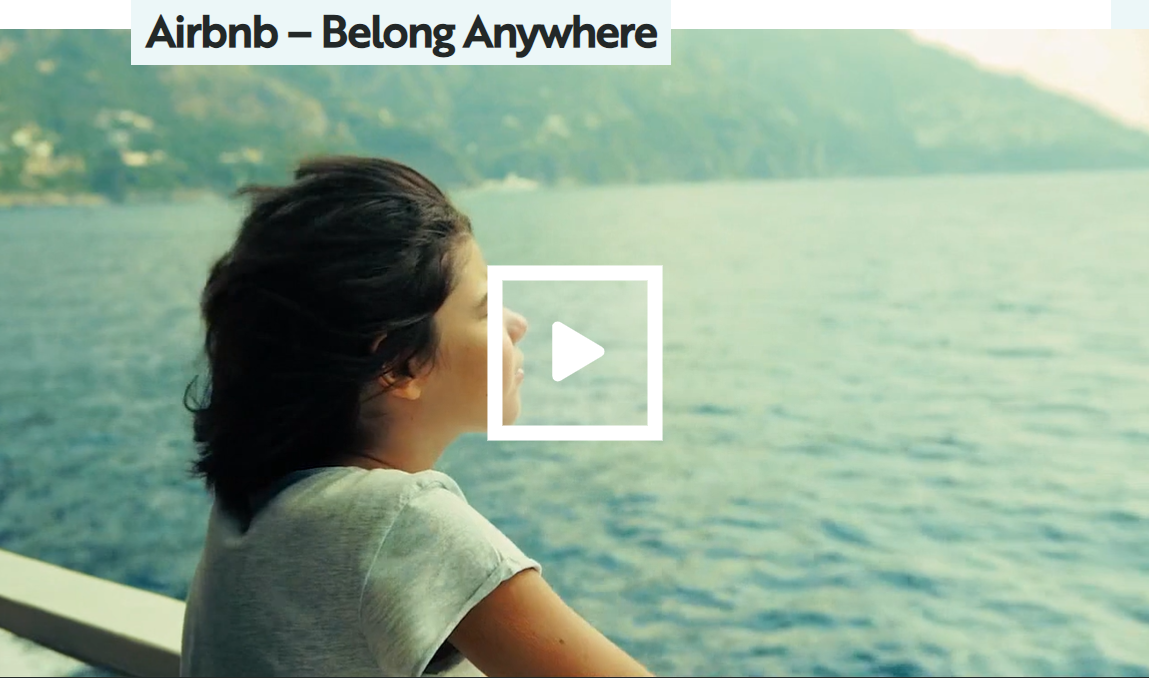Honor Society directors Cary & Jon share their strategies for giving audiences meaningful connections to the messages they consume.

With the world becoming more cynical about traditional advertising tactics, it’s hard to see how advertising will evolve.
As directors, we’ve brainstormed ways to future-proof advertising by authentically connecting people to their values.
We gave it some thought and came up with some strategies we think can lead to a healthier future for advertising.
Honest transparency between a brand and the consumer
The central principle of authenticity in advertising is honesty. As filmmakers working in this fascinating medium, we predict a future that truly revolves around authenticity, with directors potentially being the leaders of this evolution.
One of the challenges that we all face is the massive amount of advertising surrounding us. To combat this deluge that leads to passiveness, we predict that the advertisers of the future will have the power to utilize authenticity as a weapon. If brand advertisers express genuine opinions and identifiable messages that can connect with the hearts of the receivers of their messages, they will record higher emotional engagement than their competitors and leave a massive impact on their audience.
One of the best examples of this was the campaign launched by Burger King in 2023, called Real Meals. Essentially, Burger King’s campaign questioned the concept of ‘Happy Meals’ and offered a variety of ‘Real Meals’ in different modes; ultimately, realness suggests that happiness is not humanity’s exclusive driving force.
Therefore, by accepting humanity’s diverse expression, Burger King portrayed realness, and the concept of Happy Meals appeared unrealistic.
Understanding the director’s pivotal role
Directors play a very important role in shaping and transmitting real brand messages.
Since modern audiences reject all the information provided by the usual sources, we need to find new applications for storytelling as humans, which is the building block of real advertising. How can we also deploy the possibilities and perspective of a very human director for communicating real feelings and emotions with the audience?
Directing involves adjusting to the idiosyncrasies of actors, collaborating with clients and the agency to bring our collective visions to life, mastering the nuances of narrative pacing, and crafting visual gut punches that resonate with audiences on a visceral level. As the need for cultural authenticity increases, film directors must make an effort to ensure that stories transcend cultures, borders, and languages to reflect universal realities.
In REI’s campaign Nature Nurtures from 2022, the company used this slogan to show how visiting nature could act as therapy for mental and physical well-being and promoted authentic outdoor life to people less affiliated with regular nature visits.
Another colourful example is Nike’s Play New campaign, which tells people to find adventures in various aspects of life. While using the power of storytelling, the spots featured real-life daring via examples of athletes who broke boundaries and dared to challenge the impossible, instead of the unbeatable and untouchable hero image meticulously created in previous years.
Craft modern campaigns rooted in authenticity
Authenticity demands that filmmakers remain a few steps ahead through the power of current and future technologies. This is underway, yet the directors employing new technologies are not compromising their commitment to honour and keep tried and true storytelling and filmmaking practices, but rather enhancing them using present-day tools.
After all, storytelling is the key to establishing emotional connections with audiences.

These are just a few examples of successful campaigns that leverage authenticity, and we can see how great of an impact storytelling can have on authentic engagement. Airbnb’s reprise of the Belong Anywhere 2024 campaign emphasizes inclusivity and a sense of belonging. It portrays a large variety of hosts and guests, from those living in metropolitan areas to those living a more traditional lifestyle. They share stories and experiences of human connection and acceptance that create a feeling of authenticity.
Additionally, companies often follow social trends, as seen in Oreo’s Stay Playful campaign [below], which capitalized on the country’s wider discussion of mental health and spending quality time with children. Showing a young daughter stopping to dance to the music of some street musicians and encouraging her father to slow down and do the same, the spot portrayed the sentimental values that people attach to the product.
Transparency on budgetary constraints and client expectations
As they navigate the delicate balance between creative vision and commercial imperatives, directors must also ensure the clients’ understanding of the matter at hand, as well as the ethical implications of transparency – a burden that falls on the directors.
User-Generated Content (UGC) has changed the landscape of the advertising world. It allows consumers to share their voices and what they like to do on the weekends. Indeed, this poses challenges and opportunities for brands in terms of authentic campaigns, community creation, and budgeting.
However, if possible, a director shouldn’t be afraid of involving real people and UGC to foster authenticity.
Tap trends and technologies
Many technologies at a director’s disposal will shape the future of authenticity in advertising. These include AI, virtual reality, augmented reality, and live brand experiences that are all able to further authentic storytelling if wielded properly by creators.
Indeed, there are myriad ways directors can leverage these tools to create genuine connections that not only last a moment but also build connections with a brand that endure. With their capacity to crunch data and uncover hidden gems, machine-learning technologies can serve as a treasure trove of inspiration for directors, offering unique insights that can shape narrative arcs and thematic layers.
Exploring the future of advertising reveals that taking an authentic approach offers numerous possibilities. It’s crucial not to become lost in the technicalities – fundamentally, directing is about comprehending the subtleties of human perception that imbue stories with life.
When connecting with genuine, emotional individuals, technology should never overshadow the importance of the human heart.
Click HERE to read the original article.